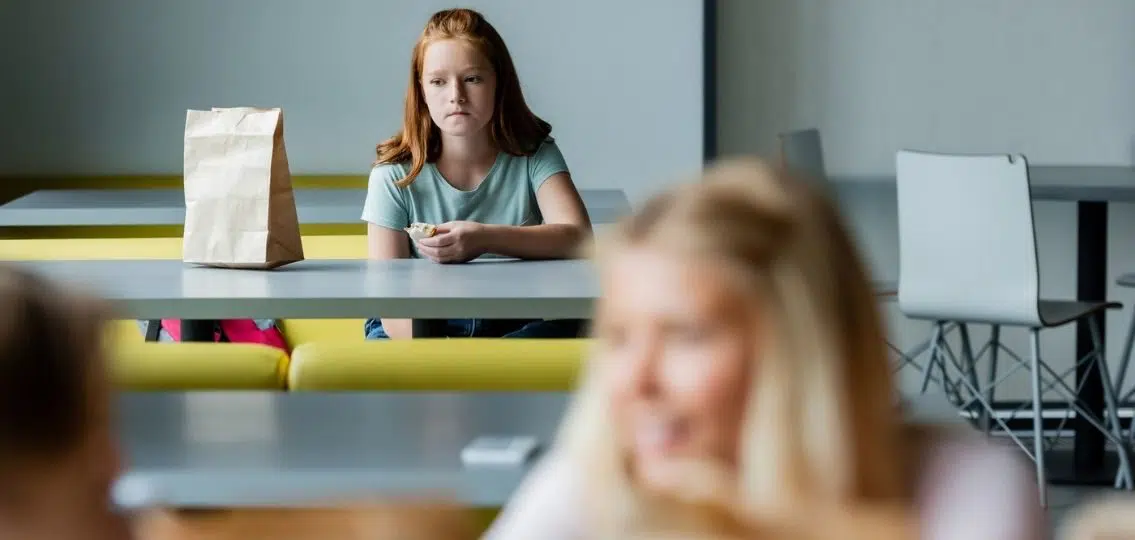To celebrate the culmination of middle school, the eighth graders at Tracy’s school always go on a class trip to Washington, DC. Tracy was really looking forward to the trip—more for the social aspect than for the monument tours. She assumed, naturally, that she’d share a room with Allison, one of her best friends since childhood. Allison, however, didn’t have quite the same expectation. Without Tracy’s knowledge, she had formed her own room—leaving Tracy out.

To teenagers, friendships are everything. They provide both social support and proof of social status. “The social support from friendship is a big contributor to a teen’s resiliency and well being,” says Tori Cordiano, Ph.D., director of the Center for Research on Girls at Laurel School in Ohio.
So a friend’s betrayal cuts right to the bone. How do you deal with teenage friendship issues, especially being left out?
6 Ways to Help a Teen Being Left Out:
1. Show restraint.
As a parent, when your child is being left out, often the first instinct is to jump into the fight. Cordiano urges restraint. “It’s incredibly painful to see your child suffering, but as parents, you are usually only hearing one side of the story,” she says. Getting involved doesn’t allow your child to learn important coping strategies.
2. Don’t be negative.
And with teenagers, stories and friendships change rapidly. “You don’t know where that relationship will go next week or next month or next year,” Cordiano explains. “If your teenager is back to being close buddies with that friend, it’s a hard spot to be in if you criticized him the day before.”
3. Be curious about being left out.
As a parent, you can stop this snowball effect, by asking questions like, “It sounds like you are taking this personally and making it about you. Is it possible that it’s not about you? What else could it mean? How could you find out?”
4. Help them see a pattern.
But if you see this same sort of situation recurring with a friend of your teen, it’s okay to share your observations. “You can say something like: It seems like a lot of times when you hang out with these friends, you often feel hurt. Have you noticed that?” says Cordiano. “You want to reinforce to your teenagers that relationships should make you feel better. If friendship issues are making you feel worse, they are probably not the healthiest relationships.”
5. Emphasize quality over quantity.
And though many teens pine for a large social circle of friends, research has shown that the happiest teens are the ones who have a couple of friends, or even just one close friend that they feel they can trust, says Cordiano.
6. Check your own reaction.
One of the reasons the topic of friendships is so sensitive for parents is because they have their own friendship scars. “I think for moms and dads, almost none of us emerge unscathed from social interactions as teenagers. And we might still be dealing with friendship issues now,” Jordan says. Without even being aware, parents might be transferring their own feelings of anger and being left out onto their child’s situation. It’s something to look out for, Jordan advises.

Ever since the Washington DC incident, Lisa has stopped trying to play the role of mediator in her daughter’s friendship drama. But that doesn’t mean hearing the stories gets any easier. “To this day, it’s really hard to stay impartial,” she admits.




